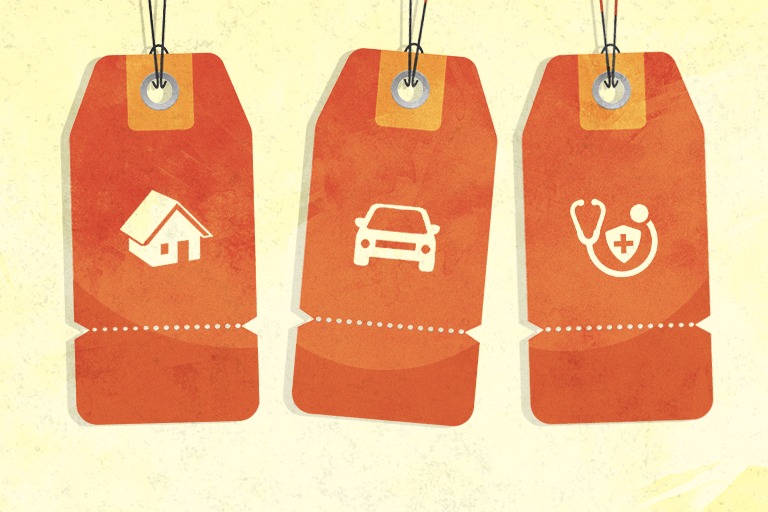KARACHI: Even though my soul often tries to tell me otherwise, I am a millennial. Baby boomers might be rolling their eyes at me right now while Gen Z probably did not even bother to click on the link. But hear me out, I am not just a millennial, I am one of the 64 per cent of people who make up the young population of Pakistan. That’s right, nearly 64% of the people living in Pakistan are under 30 while 29% are aged between 15 and 29 years. But my point here is not about the demographics of our country, it is about all the things I cannot afford as a millennial in Pakistan. On top of that, being a woman means my options are even more limited.
Rent
As a single, 26-year-old living in Pakistan, it is almost understood that I live in my parents’ house. We might have adapted a lot of western ideas but moving out of our parents’ house as soon as we turn 18 is not one of them. Do I want to move out? Most of the days. Can I afford to move out? I wish. Even as a graduate from a well-reputed university in Karachi and someone who has been working for years, I cannot afford to have my own place. Forget about owning or renting out a house, most of us cannot even afford to rent an apartment. Sure, two people could share an apartment, but my gender does not make many things easy for me. Many people are hesitant to have single women as their tenants, plus the fear of strangers (read: men) that our society has instilled in me and many other women means my flat-mate must also be a woman. And exactly how safe is our country for two young women to be living alone?
If one way or another, I did manage to rent out an apartment, I can only dream of being able to pay for my utilities and everyday expenses on top of the rent.
Comment: Why millennials like me don’t want children
Transport
If one cannot afford rent, not being able to afford a car is almost a given. Have you seen the prices of those things? Of course, any country which invests in its people and cares about the environment has a good network of public transportation in place. But not Pakistan. We already know what Karachi’s transport system looks like, not that travelling by public buses is a woman’s first choice anyway. Sure, we have services like Careem and Uber in place but neither of those are affordable on an everyday basis, nor safe. Every time I travel in a stranger’s car, my breathing speeds up a little, and I always remember to share my live location with a friend. So no, even if my bank balance could afford to travel by taxi everyday, my anxiety sure cannot.
Healthcare
At the expense of this article beginning to sound like a rant, I want to talk about the last thing (for now) that I cannot afford. Healthcare. Not long ago I found out that I have a spinal misalignment for which I had to go visit a chiropractor. One of the reasons why I delayed my visit to the doctor by months because I knew how much it was going to cost me. Incase you’re curious, each visit cost me nearly Rs.1,000/minute. That’s right, I was paying one grand per minute. Thank God the sessions were short but they were not isolated. I had to get a couple of tests done before my treatment began only to find out that my health insurance does not cover most of those tests. What it does cover is hospitalization. So unless I’m sick enough to be admitted to a hospital, I’m on my own with the bills.
The insurance did cover my MRI which alone cost close to 10 grand, but when it came to reimbursing the amount, apparently a committee decided that only 80% of the amount was going to be reimbursed. As if I had decided upon the cost myself and requested for a refund? How did I afford the treatment after all then, you must be wondering. My brother helped me pay for half of it. Which brings us back to square one. For more than one reason, can I afford to move out of my family home?
I am a privileged woman and I cannot speak on behalf of the whole millennial population living in Pakistan but I can speak for a fraction of it. My privilege allows me to be able to ask family for financial help or to stay at my parents’ house for as long as I want. My privilege allows me to write about unaffordable public transport while sitting in the backseat of my mother’s car. It was not until after I graduated from university that I realized that it is not natural to have my parents pay for most of my things. I am privileged but so many others are not. We should not have to pick and choose between our own space and our safety, nor should bills be an added burden when we require medical care. Most importantly, women’s mobility should not have to be a gamble.

 Design by Aamir Khan
Design by Aamir Khan











